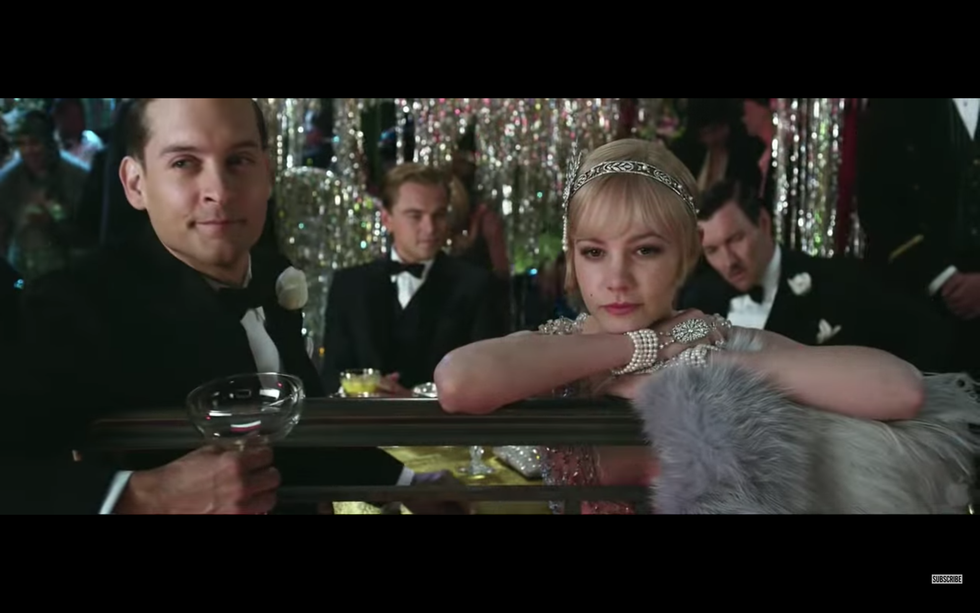Disclaimer: spoilers ahead.
In reading and rereading The Great Gatsby, there are certain things often left questioned, unexplained, pondered upon. I think that's what makes the novel so enticing to read: each time you pick it up, you notice something new.
For example, notice this eerily familiar observation that Nick makes on page 20 on the way back to West Egg: "Already it was deep summer on roadhouse roofs and in front of wayside garages, where new red gas-pumps sat out in pools of light."
If you've read the book, this should sound just like a hidden description of the setting of the final few scenes before Gatsby's death. Gatsby's death. Now, that's another topic of conversation, often questioned and pondered upon.
In the final pages of The Great Gatsby, F. Scott Fitzgerald effectively ended Gatsby's life with a few short, non-descriptive words. Fitzgerald wrote that the Butler heard a "few shots." A largely asked question is whether or not that was a fitting end for the character, and why Fitzgerald chose to write it the way he did.
In my opinion, the end reflected everything the book stood for. The empty feeling his death gives to the audience is representative of Gatsby's own hollowness, his failure in achieving his own dream. He lived with a weakening grasp on his optimistic grail of Daisy, but when he realized his dream died, his desolation gave way to the realization that he had no reason to continue. That, essentially, allowed for his subsequent death. Gatsby always lived his life working towards an increasingly empty dream along with elaborate efforts that created a façade over his increasingly empty life, and with his dream's death came his own death.
His corrupt ways brought him close to the Buchanans' affluence but never tantamount, which upholds Fitzgerald's focus on Tom and Daisy's superiority when it comes to wealth, a status that Gatsby will never be able to meet. It just further proves that in American society, birth caste constrains even those who become wealthy. Regardless, with his hopefulness, he lives with his dream, as empty as it is, until neither he nor the dream is alive.
This hope is seen in Gatsby's famously naïve line:
"Can't repeat the past? Why of course you can!"
For even when the prospect of Daisy is all but lost, he takes the blame for Myrtle's death in Daisy's stead in attempts to hang on to any last sliver of hope. And that, in its entirety, is what makes the end fitting. He dies as he lets go of the one quality that allowed him to continue: hope. In my opinion, Fitzgerald wanted to maintain the simplicity and the emptiness both associated with his death, and also surrounding the events leading up to his death.
Gatsby's death wasn't meant to be a struggle or something dramatized; it was meant to symbolize the end of his dream proportional to the end of his life. Without the significance associated with the empty, brief description of his death, there would be no parallel between his efforts to achieve his dream, his dream's death, and ultimately, his own death.



















